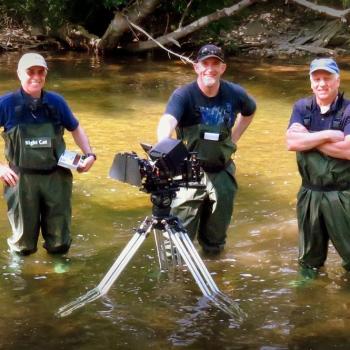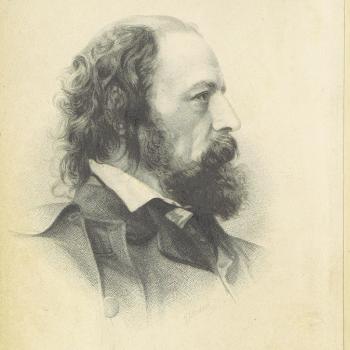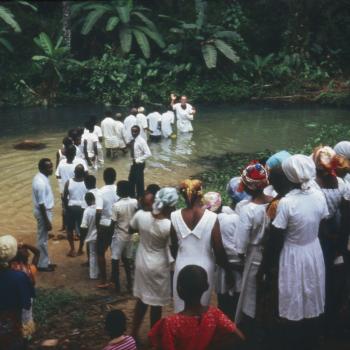
I’m falling behind on the photographs that Jeff Bradshaw, one of the Interpreter Foundation’s vice presidents, has been sending to me. (He is over in Africa, working on the Interpreter Foundation’s Not by Bread Alone film project.) Here, for example, are some photos that arrived in my inbox fully a week ago under the title of “Warm fellowship and flaming testimonies in the heat of Parakou.” They are accompanied by Jeff’s comments:
“A wonderful finish to a wonderful stay. It was terribly hot, however (97—“feels like only” 106), and some went to bed early tonight to recover. Tomorrow we will walk to Church, then drive south to Cotonou for our last night in Benin.”
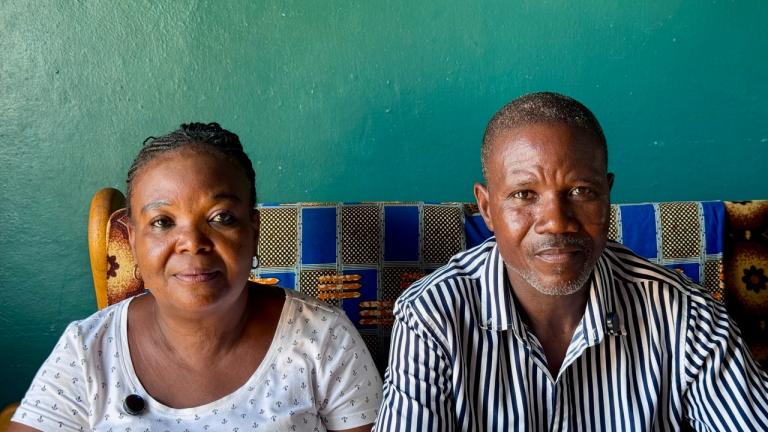
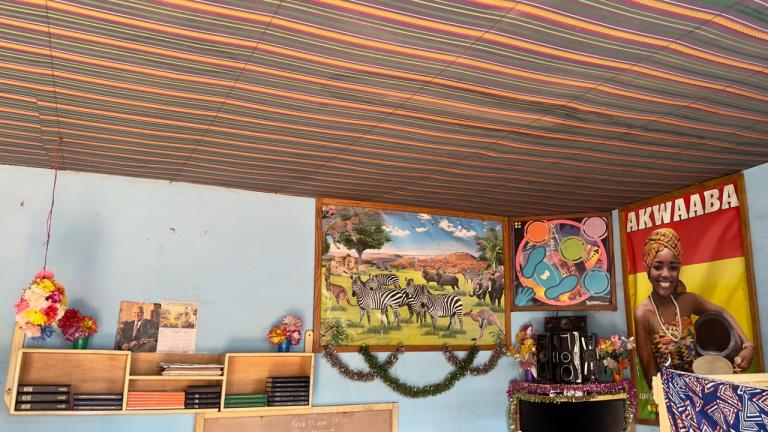
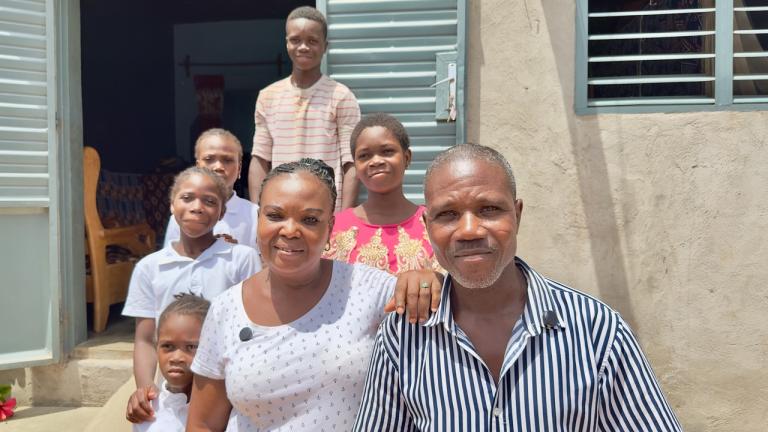
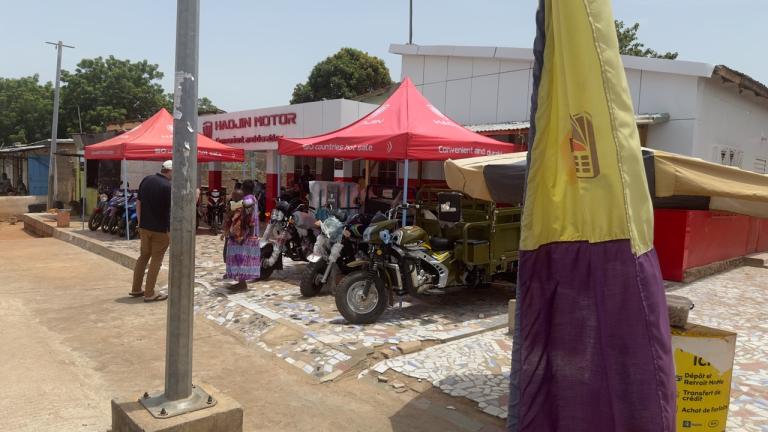
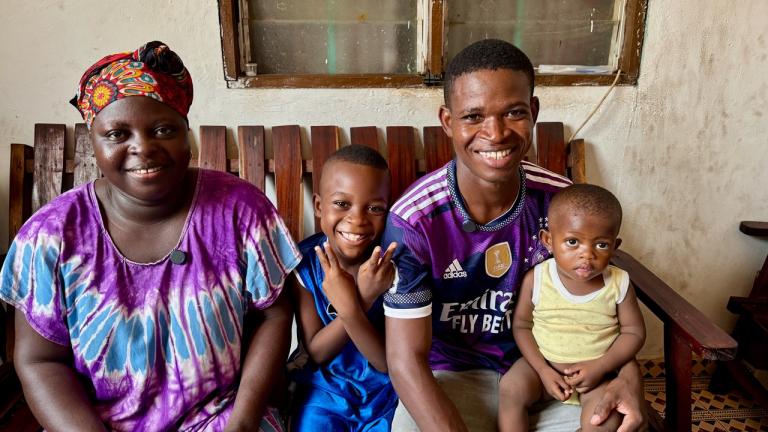
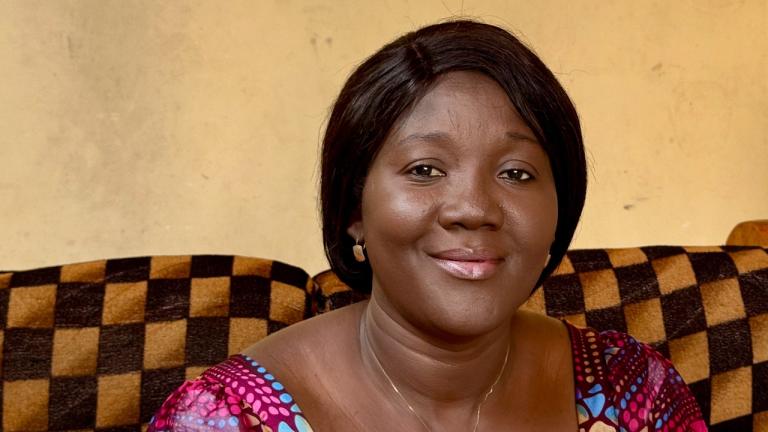
Clarisse is a single mother and had a very traumatic marriage earlier in her life. Every morning and every evening she went to Catholic communion after she and her husband separated, but she couldn’t find peace. After she met the missionaries, she attended Church once, but had no intention of going back until her children, two-years-old and four-years-old, convinced her. In sacrament meeting that day, she heard a talk on repentance that brought her peace.
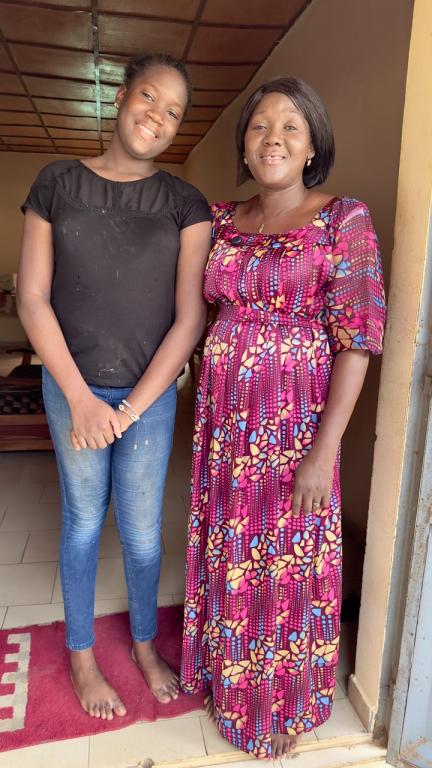

I love the capacity of the Church of Jesus Christ of Latter-day Saints and of the Restored Gospel to create a global fellowship that, while still valuing them, rises above cultures and ethnicities, and that can unify us in a cause that transcends such distinctions.
Many years ago, I was serving as a member of a high council in a stake that was not my own. It was mostly made up of singles wards. One day, though, the stake president assigned me to the one married ward within the stake. It was an “Asian” ward. At least one member of each of the couples in its membership had been born and raised in Asia, so it had classes on Sundays in Chinese, Korean, and Japanese. (When he made the assignment, the stake president quipped that he thought I would bring particular insight to my responsibility, since I taught an Asian language — Arabic. He delivered that comment completely deadpan, so I couldn’t immediately tell that he was joking.)
Anyway, I thoroughly enjoyed my relatively brief assignment to that ward. I was eventually called out of it, and altogether out of that stake, in order to serve in the bishopric that was responsible for BYU’s octagonal foreign language residence, which is located up by the Provo Utah Temple. In that ward, we routinely had Sunday school classes in French, German, Spanish, Portuguese, Japanese, Chinese, and etc. — and, yes, fairly frequently, in Arabic. I was always amused when those offering the sacrament prayers would turn to me at the conclusion of a prayer, seeking confirmation from me that it had been offered correctly: In Korean, for instance, or Chinese, so long as they concluded with an Amen they could have said just about anything and I wouldn’t have been the wiser!)
But back to that earlier, Asian, ward assignment: I recall someone commenting to me once at the end of a high priests’ group meeting that the thing was a miracle. What did he mean by that? It was the only group of high priests in that stake: The group leader was a distinguished and rather elderly Japanese member of the Church — an adult convert and a military veteran who had served in the Japanese army during the Second World War. (He is long gone now.) His two assistants were from Taiwan and from South Korea. Given the historical animosities in the region, particularly for those of their generation, the person speaking to me observed, the ability of three such men to work faithfully and lovingly together was nothing short of miraculous.
I thoroughly believe that. I’ve seen many such instances over the course of my now rather ridiculously long life, and I love to see them. I think that we’re seeing them, too, when prosperous white Americans and Canadians and Europeans are called out of their comfort zones and sent to work in communities in Africa that they would never otherwise even have visited, among people whose lives and backgrounds and experiences are very different than their own — where they learn to love those people as their brothers and sisters.
“Wherefore,” as Doctrine and Covenants 65:6 puts it, “may the kingdom of God go forth, that the kingdom of heaven may come.”
Posted from New York City




